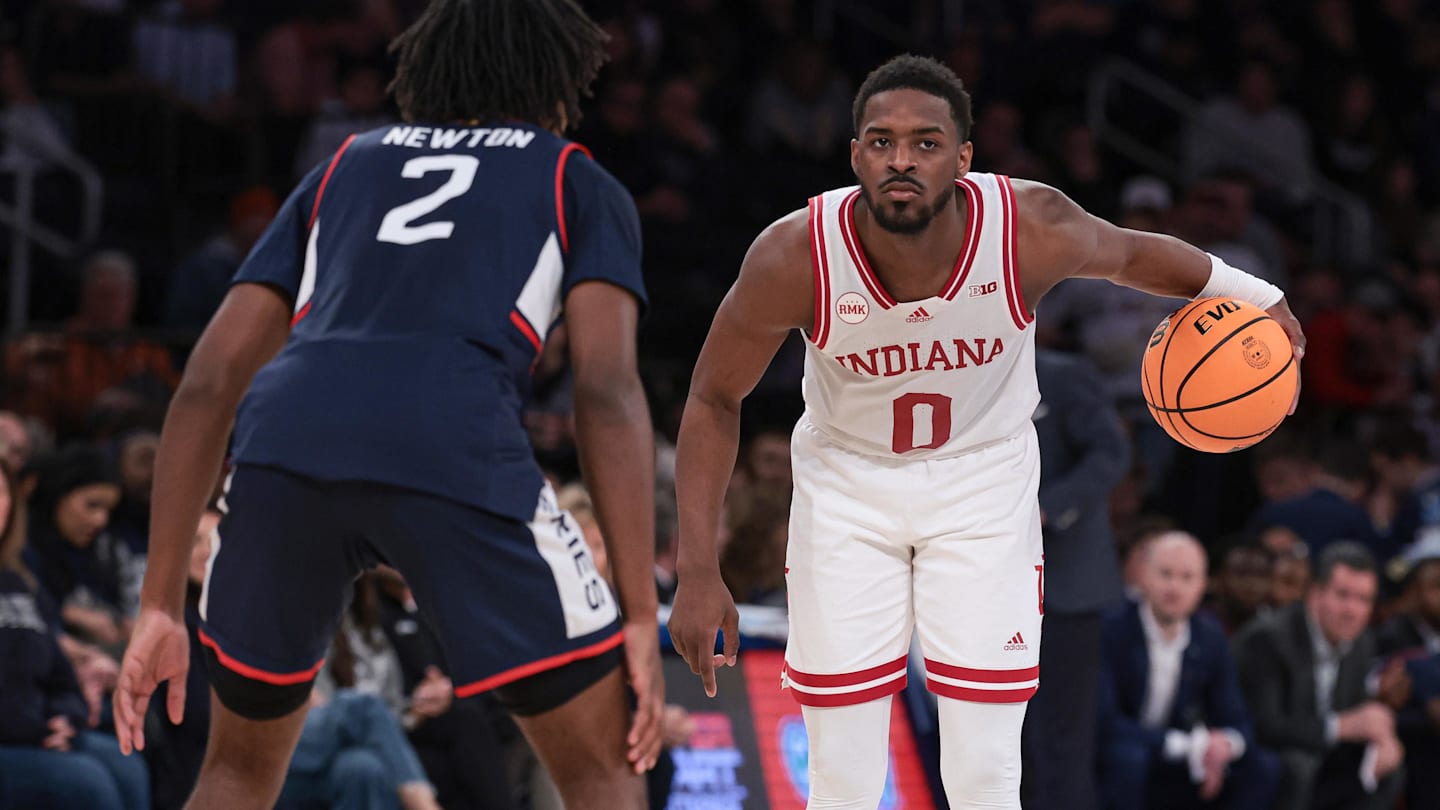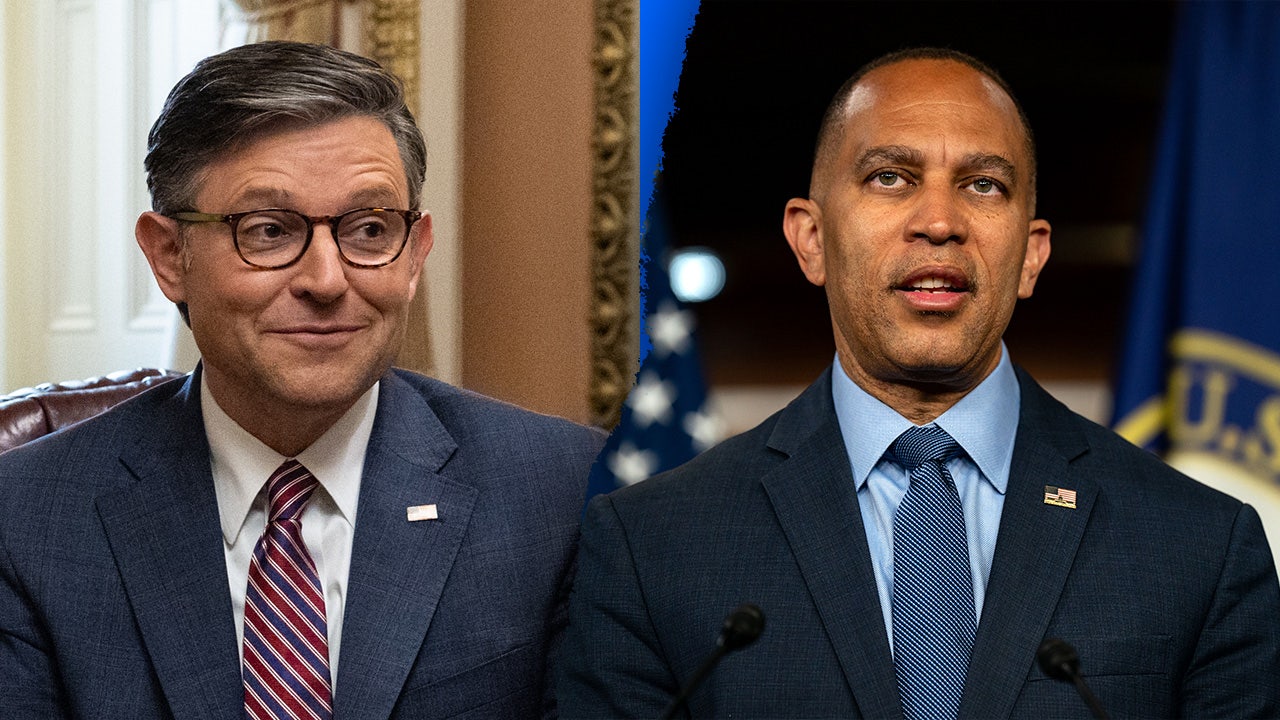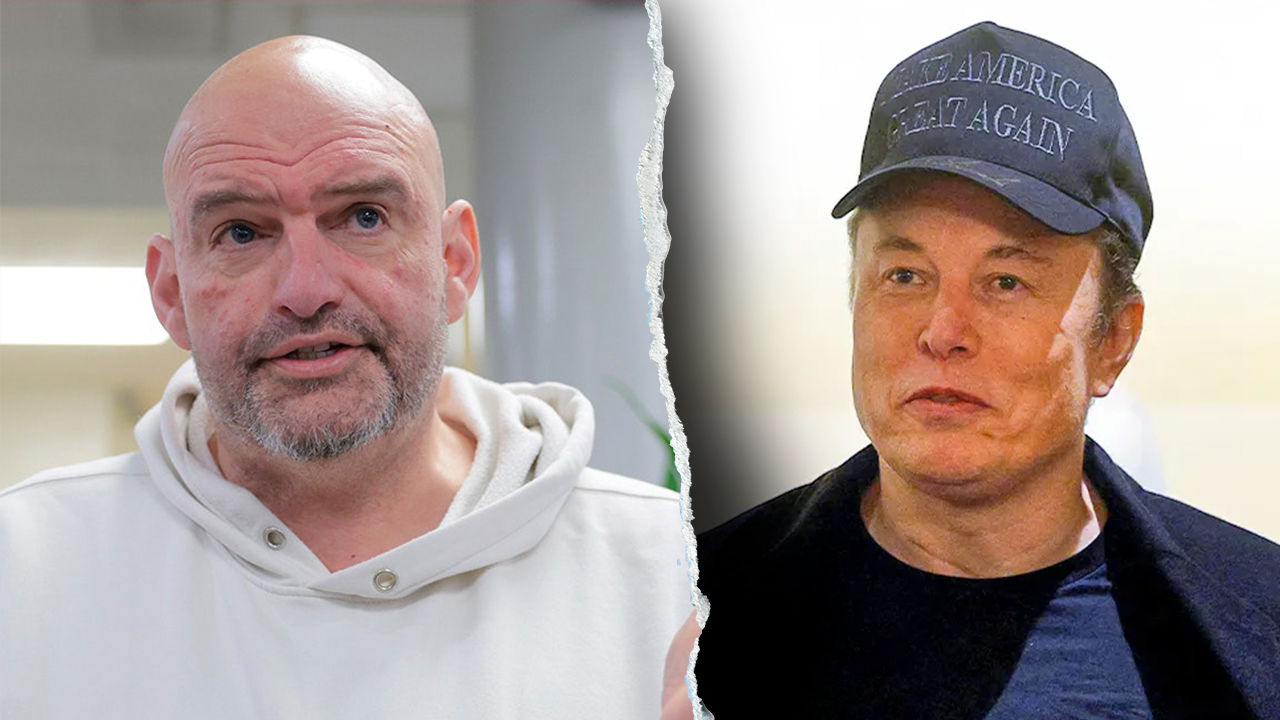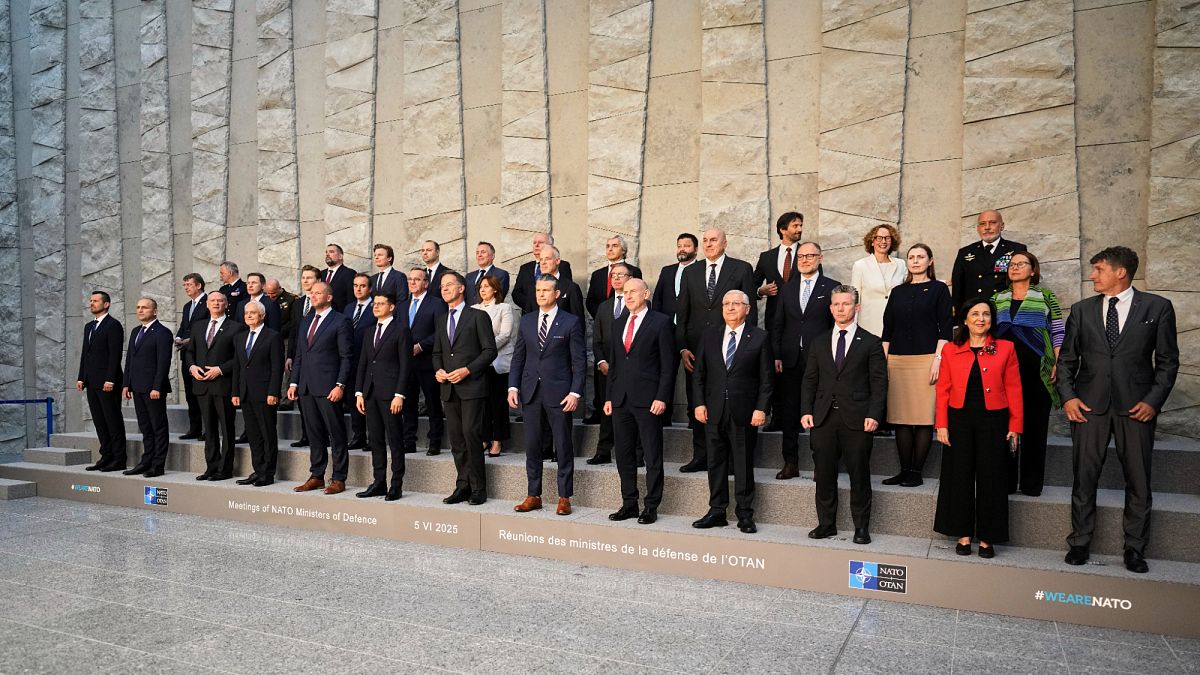Nevada
Indy Explains: What is the status of cannabis rescheduling in Nevada? – The Nevada Independent

Officials with the Cannabis Compliance Board (CCB) are preparing to study rescheduling cannabis in Nevada to align with the Biden administration’s recommendation that seeks to lower its federal drug classification from Schedule I to Schedule III — a recommendation that’s part of the president’s stated goal to reform marijuana policy.
The group has convened three times since the announcement in late August — inviting litigators and policy experts, who have worked for federal regulatory agencies, to shed light on what may come. The advisory subcommittee decided to pursue a state-level examination focused on the potential effects of cannabis becoming a Schedule III drug in Nevada, even though some advocates want to study a more sweeping policy — removing cannabis from the federal drug list altogether.
Schedule I is the most scrutinized drug classification category and includes heroin, LSD, peyote, methylenedioxy-methamphetamine and ecstasy. Schedule III substances, which have been accepted as medicinal and are deemed less likely to be abused, include ketamine, anabolic steroids, testosterone and products containing less than 90 milligrams of codeine per dosage unit.
Only one thing is guaranteed to change for the commercial cannabis industry between the two scheduling classifications. Tax benefits.
According to Layke Martin, the executive director of the Nevada Cannabis Association, cannabis businesses, because they are federally illegal, currently pay an effective tax rate of as much as 74 percent, compared with alcohol businesses, which pay 21 percent or less. The businesses are ineligible for certain federal tax deductions — including advertising, wage and salary and travel write-offs — as long as cannabis is Schedule I.
Those formerly convicted of cannabis charges, patients and industry professionals pushed back against the commission’s priorities, preferring a focus on descheduling. Descheduling means cannabis is removed from the controlled substances list, which Congress created in 1970 to “regulate the manufacturing, distributing, importing/exporting, and use of regulated substances.”
During the public meetings, proponents of descheduling said they feared that the focus on simply downgrading marijuana’s ranking on the controlled substances list rather than taking it off the list altogether could lead to policy recommendations that would walk back the state’s progress in cannabis legalization.
They also voiced concerns that rescheduling could open the doors to pharmaceutical giants that would uproot cannabis culture, intensify “corporate cannabis” and fail to address harm and racial disparities from decades of the so-called war on drugs.
“I understand the discussion on rescheduling for federal, but Nevada has spent decades working with laws and regulations outside of federal,” said Jason Greninger, a member of the cannabis trade organization Chamber of Cannabis, told a CCB advisory subcommittee on Sept. 15. “So the state has already determined that it is descheduled by constitution.”
The committee was mandated to study federal and state laws and regulations concerning the removal of cannabis from Schedule I through SB277, which was passed in the 2023 legislative session. They are required to have a report ready for the Legislature by March 2024 that includes their research findings and policy recommendations.
Criminal penalties still exist for unlawful possession of cannabis, with repercussions based on the amount involved and proof of purchase or agent card. Those will remain in some form as long as cannabis remains scheduled by the Controlled Substances Act.
“I know there are some folks who think the state’s discussion [about descheduling] is more important,” said Sen. Dallas Harris (D-Las Vegas), who sponsored SB277. “And then some folks think the federal discussion is more important … but they’re both going to impact the industry in different ways.”
Nevada’s path to cannabis decriminalization
Medicinal cannabis use was legalized in Nevada in 2000, followed by laws allowing for medical dispensaries in 2013 and a 2016 ballot measure legalizing recreational use.
The emergence of the legal cannabis industry in Nevada has continued even as the federal prohibitions stayed in place.
Cannabis was descheduled in Nevada last fall after advocates won a lawsuit against the Nevada Board of Pharmacy that required the agency to remove the substance from the felony drug list, but the pharmacy board appealed to the Supreme Court, asking to maintain the status quo.
According to Brett Kandt, general counsel at the Nevada Board of Pharmacy, the governing body “retains the authority to schedule marijuana” because the Nevada Supreme Court issued a stay of the district court’s order while the appeal is pending. Kandt said that means cannabis is Schedule I until a ruling from a judge.
During the 2023 legislative session, lawmakers passed Assembly Joint Resolution No. 8 that urged Congress to deschedule cannabis nationally. If cannabis is descheduled, it would no longer be governed under the Controlled Substances Act, modeling the 2016 ballot measure that voters approved. The initiative called for cannabis to be regulated in a manner similar to alcohol in Nevada.
A private citizen was the sole opposition to the resolution during a hearing, citing federal warnings about marijuana’s health side effects.
A long route to rescheduling
Shane Pennington, an appellate lawyer who focuses on regulatory litigation, told members of the rescheduling subcommittee that historically it takes at least 9.2 years to reschedule a substance. But according to Pennington, the process for cannabis is off to a speedy start.
“From the time of the initial request to Health and Human Services [from Biden] to a recommendation being transmitted to the DEA, [which] normally takes around two and a half years on average … we are beating that historical record by more than 50 percent,” he said.
Pennington said that from a high level, the next step falls on the DEA conducting its own analysis on the federal scheduling of cannabis. He said it is unlikely that the DEA would move beyond the recommendations of the Department of Health and Human Services (DHHS) and that the DEA would lose jurisdiction over cannabis if it were descheduled completely.
“But what would not change is that the Food and Drug Administration (FDA) … would still have jurisdiction over cannabis because cannabis qualifies as a drug under the Federal Food, Drug and Cosmetic Act,” Pennington said. “Because the FDA would suddenly be sort of without its partner — the DEA — sort of sharing federal jurisdiction over this very controversial nebulous area of law, now would be all by itself.”
He said if the DEA aligns with DHHS, then drug officials will propose a new rule in the Federal Register to reclassify cannabis as a Schedule III substance. If that happens, Pennington said it would kick off a 60-day public hearing period where people can request to go on record before an administrative law judge.
“They’re like many trials where you present evidence, cross examine witnesses and raise objections to the proposed rule,” he said of the public hearings.
Pennington said once the trials and public hearings conclude, all of the information is recorded and given to the DEA “to resolve any lingering objections or issues that came up.” The agency will weigh in on the findings from trials and public comment and make its final decision regarding cannabis scheduling.
Pennington said once the DEA publishes the ruling to the Federal Register, that a 30-day delay will be in effect before it’s public. He said during that time, “anyone who believes that they were aggrieved by the final rule has 30 days to seek judicial review.”
Effects on state-regulated cannabis businesses
At a commission meeting on Sept. 29, Howard Sklamberg, the top enforcement official at the FDA, said rescheduling wouldn’t have “a tremendous effect” on how states operate cannabis marketplaces — besides changes in tax burdens and possibly increased access to banking.
Sklamberg said even though cannabis is an illegal substance under FDA statute, that the agency “has not done enforcement in this space and that there’s no reason to think that it will.”
He said the FDA has not interfered with states overseeing legal cannabis businesses for decades, and that states can choose how to change their programs if scheduling changes.
“Is the FDA going to go in and inspect or enforce things [if cannabis is reclassified]?” Sklamberg said. “I think it will not, just as it is not now.”

Nevada
Trump administration changes derail Nevada’s $416 million rural internet program
Military equipment headed to DC ahead of Trump’s birthday parade
Battle tanks, fighting vehicles and infantry carriers departed Texas for D.C. for President Trump’s military parade.
The Trump administration announced new guidelines on June 6 for a national internet program that scuttles $416 million already approved for Nevada.
As part of the Biden administration’s infrastructure act, $42.5 billion had been allocated for the Broadband, Equity, Access and Deployment program to expand high-speed internet in rural areas.
Nevada, one of the few states to jump through the hoops to qualify, had hoped to break ground in summer 2025. But in April, the U.S. Commerce Department put the program under a 90-day review. That review is now over.
“Today we proudly announce a new direction for the BEAD program that will deliver high-speed internet access efficiently on a technology-neutral basis, and at the right price,” said Commerce Secretary Howard Lutnick in a statement.
The marquee changes are removing diversity requirements in hiring and eliminating “extraneous and burdensome obligations to conduct climate analyses,” according to a factsheet released by the National Telecommunications and Information Administration, part of the Commerce Department that oversees internet projects.
Now, Nevada must reapply for the BEAD funds. States were given 90 days to comply with the new guidelines.
In response, Sen. Jacky Rosen, a Nevada Democrat, vowed to put a hold on all nominations for Commerce Department positions related to broadband policy until Nevada gets its BEAD funding.
“I’m beyond outraged that the Trump administration has moved the goal post yet again and rescinded Nevada’s approval to get the BEAD funding I secured to connect the hardest-to-reach communities in our state to high-speed internet,” she said in a statement.
“This decision will put Nevada’s broadband funding in jeopardy, and it’s a slap in the face to rural communities that need access to high-speed internet.”
The broadband team with the Nevada Governor’s Office of Science, Innovation and Technology told the Reno Gazette Journal it was still digesting the news.
“Our office is still reviewing the updated guidance from NTIA and does not have further comment at this time,” a spokesperson said.
Mark Robison is the state politics reporter for the Reno Gazette Journal, with occasional forays into other topics. Email comments to mrobison@rgj.com or comment on Mark’s Greater Reno Facebook page.
Nevada
Nevada Teen Found Dead After Friend Said He Dropped Her Off To Meet “Cowboy” | Oxygen

Britney Ujlaky was a free spirit.
The beautiful 16-year-old loved riding on horseback through the picturesque hills of Spring Creek, Nevada, where she lived. She was close with her friends, wasn’t afraid to stand up for herself, and had an exceptionally tight bond with her gold-miner father, according to Dateline: Unforgettable.
But on Sunday, March 8, 2020, Britney mysteriously vanished, leaving her family desperate for answers.
“Some stories are memorable for their twists, or their characters, or where they happened,” correspondent Josh Mankiewicz said in the “Open Desert” episode of Dateline: Unforgettable. “This one checked all three boxes.
“Spring Creek is in Elko County, Nevada, a place I’d never been,” he added. “It’s genuine cowboy country and its natural beauty is stunning. It’s also where the Ujlaky family came face to face with a cold hard truth: You can do everything possible to keep your child safe and sometimes that still won’t be enough.”
Who was Britney Ujlaky?
Growing up in the rural wilderness, Britney was a girl who loved horses and the rodeo, and often displayed her own blend of cowboy bravado.
“The way that she carried herself was very like you don’t want to mess with me, like she stood up straight and she squared her soldiers. She never slouched,” her best friend Saquarra Ashby remembered.
The high schooler loved to spend time with her friends and had a close relationship with her father, Jim Ujlaky, whom she lived with after her parents divorced.
“From the day she was born, she kind of saved my life,” Jim told Mankiewicz through tears. “I was on drugs and I was single, lived a party life and everything, making really good money and just living it up and (the) first breath she took, (I) looked at it, and straightened my life up, sobered up and devoted my life to raising my kids.”
California Mom Fatally Stabbed and Beaten by Husband’s Mistress, Who Kidnapped Her from Target Parking Lot
The day Britney Uklaky disappeared
Sunday, March 8, 2020 started out just like any day for the Uklaky family. Britney, a self-appointed music critic of her dad’s heavy metal band File Not Found, accompanied him to his weekly band practice.
“She’d storm in like she owned the place,” Jim remembered of her frequent advice, telling the band members every time they missed a note or didn’t sing something right.
But she was also a typical teen and eventually tired of the middle-aged musicians. Britney arranged for her friend Bryce Dickey to pick her up at a nearby park in the mid-afternoon, promising her dad that she’d be home later, likely even beating him home from practice.
Jim grabbed dinner with the band and then drove home, calling Britney along the way. But his calls went unanswered, something that was highly unusual for the teen.
“After the third time, [I] started getting a little panicky,” Jim said.
It was now nearly 7 p.m. and Jim hadn’t heard back from Britney. He called her mom, Alisha, thinking maybe she’d gone to visit her, but she hadn’t heard from their daughter either.
Britney’s younger brother James Jr. called Dickey to find out what time he last saw her.
“He told me he’d dropped her off with some new friend at the high school,” James Jr. said.
Man Who Went By “Homicide Howie” Fatally Shot Co-Worker in North Carolina, Then Fled and Went To Bible College
Bryce Dickey tells story of cowboy
Dickey later told the same story to the Elko County Sheriff’s Office, insisting that after hanging out with her for about three and a half hours that afternoon, he dropped Britney off at the school.
“He said that she wanted to get dropped off at the Spring Creek High School because she was going to meet a new friend and he saw her get into a truck with an unknown cowboy,” Nick Stake, then a detective, told Dateline.
Dickey — who had been a close friend of Britney’s since middle school and acted as a big brother of sorts — described the truck as an older model green Ford F-150 and said the man was a tall, white cowboy, adding that Britney never told him the stranger’s name.
As news of Britney’s disappearance began to spread, her mom got a tip on social media that her daughter may have been out with a man named JT.
That tracked with what Ashby knew about her friend.
“She had started talking to a guy named JT,” she recalled. “She had told me about him.”
How Lori Vallow and Chad Daybell’s Religion-Fueled Romance Led to Multiple Murders: “Instant Fatal Attraction”
Detectives set out to try to track down the mysterious stranger driving a green pickup truck, who possibly went by JT. But after combing through databases and DMV files and chasing down false leads, they weren’t able to find anyone that appeared to match the description.
They also knew that Britney had been bullied by a group of girls at her high school and found video of Britney getting into a physical altercation with two of them at a rodeo about a year before she disappeared.
They considered the possibility that Britney had been the victim of foul play at the hands of one of the girls, but that theory didn’t pan out either.
Search widens for Britney Ujlaky
Investigators and Britney’s family launched an extensive search effort through the vast Elko County wilderness. Britney’s friends, including Dickey, came out in droves to try to find any sign of the missing teen.
Jim took his truck, driving through the remote woods looking for any sign of her. By then, he had a sense that his daughter was no longer alive.
“We’re looking in the sky for birds cause we were out looking for a body,” he said. “We couldn’t see anything, couldn’t find anything.”
Before Real Killers Were Caught, Sister Suspected of Murder Due To Feud Over Family Engagement Ring
Britney Ujlaky’s body found
But on the third day of the search, someone stumbled on a blue tarp and discovered the teen’s body hidden underneath it. She’d been strangled, had a single knife wound to the neck and there were signs of a possible sexual assault.
Britney’s mom Alicia was at the sheriff’s office when Stake got the news.
“I couldn’t walk,” she said. “My legs didn’t work and he just had this look on his face, just this, such tortured look on his face and he’s like, ‘I gotta go, I gotta go, are you ok?’”
For Jim, it brought a sense of relief, knowing his daughter wasn’t out in the elements any longer, but he also deeply grieved the loss of his daughter.
“I lost the only person who ever truly loved me, without any conditions, nothing,” he said. “My son loved me too, but she was the first born and you know living the life I led didn’t think anyone ever cared. She did.”
At the crime scene, detectives found what looked like chewing tobacco on the ground and recovered a used condom about 60 feet away from the body.
Investigators shift focus back to Bryce Dickey
After still finding no sign of the mysterious stranger that Britney allegedly went off with, detectives turned their attention to the last known person to see the teen alive: Dickey.
Dickey was two years older than Britney and had been a close friend for years.
“He’s kind of just one of those geeky kids, just a shy little cowboy kid that would kick his feet and look at the ground when you talked to him,” Britney’s mom, Alisha, recalled. “He’d come sit over at the house while Britney was getting her makeup on to go to the rodeos. He was always her ride to places.”
The family had no reason to worry when Britney left that day with Dickey, since she had done the same thing so many other days. Britney even posted a picture of the pair smiling from Dickey’s truck on the last day of her life.
Dentist Kills Wife on Safari Trip, Then Cashes in on Life Insurance and Moves in Mistress
Investigators noted that the desert landscape in the photo was eerily similar to their crime scene. They called Dickey in for more questioning and he agreed to hand over his phone and give a DNA sample. It turned out to be a match to the condom and the chewing tobacco left at the scene.
Surveillance footage also confirmed he’d been lying to investigators about where he was that day and put his truck going in the direction of the crime scene, not the high school.
Confronted with the information, Dickey admitted to having sex with Britney, but said they both immediately regretted it. He insisted he didn’t kill her.
Bryce Dickey charged in Britney Ujlaky’s murder
Dickey was arrested and charged with sexual assault and murder.
Authorities were never able to determine exactly why Dickey turned on his friend that afternoon, but those who knew him suspect he may have been tired of being relegated to the friend zone.
“You know, unfortunately, or maybe even fortunately, we’ll never know exactly what happened, but I know that the evidence supported that Britney and Bryce went out there willingly,” Elko County District Attorney Tyler Ingram said. “I think Bryce didn’t get what Bryce wanted and he took it into this own hands.”
Dickey went on trial in May of 2022 and was found guilty of murder and sexual assault. He was sentenced to life in prison with the possibility of parole at the age of 64 years old.
For Jim, it could never be enough of a punishment.
“There’s no justice,” he said. “She’s not coming back.”
Nevada
The train wreck in Carson City: How lawmakers derailed rail safety

-

 News1 week ago
News1 week agoVideo: Faizan Zaki Wins Spelling Bee
-

 Politics6 days ago
Politics6 days agoMichelle Obama facing backlash over claim about women's reproductive health
-

 News1 week ago
News1 week agoVideo: Harvard Commencement Speaker Congratulates and Thanks Graduates
-
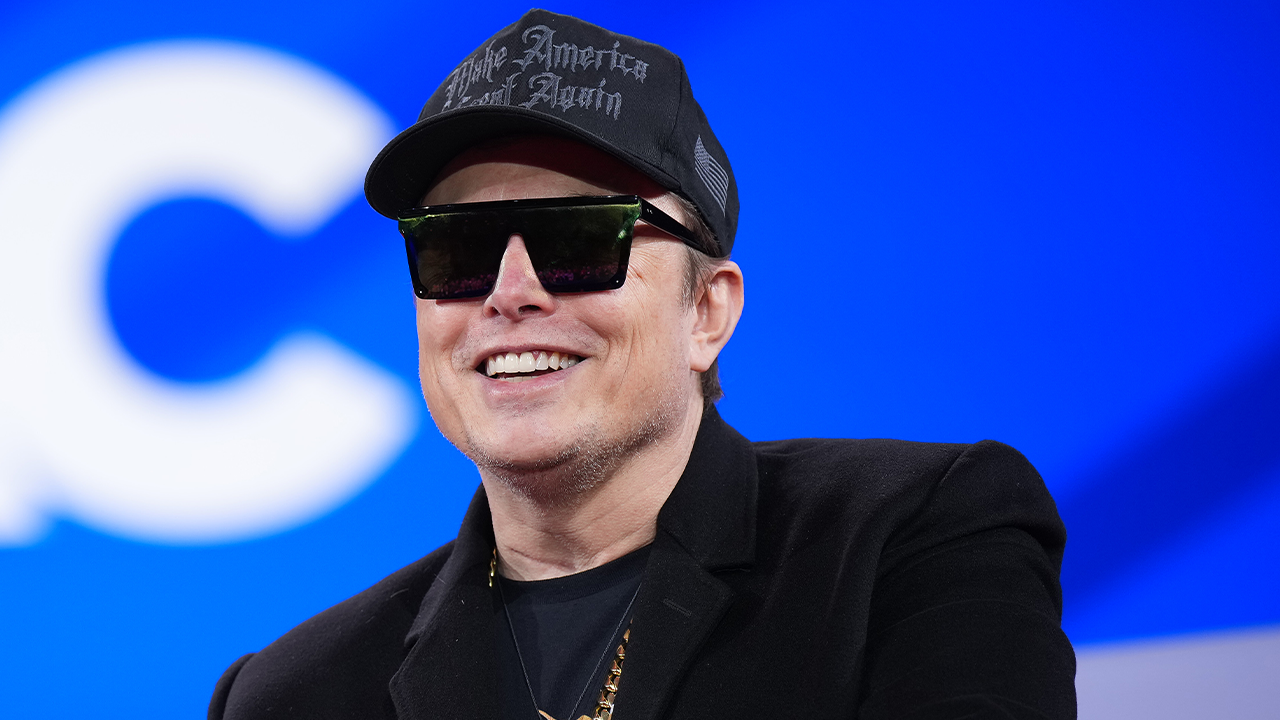
 Politics1 week ago
Politics1 week agoMusk officially steps down from DOGE after wrapping work streamlining government
-

 News1 week ago
News1 week agoPresident Trump pardons rapper NBA YoungBoy in flurry of clemency actions
-

 Technology1 week ago
Technology1 week agoAI could consume more power than Bitcoin by the end of 2025
-

 Technology1 week ago
Technology1 week agoSEC drops Binance lawsuit in yet another gift to crypto
-

 Business1 week ago
Business1 week agoSix Flags to cut 135 jobs at Knott’s, Magic Mountain and other California parks


